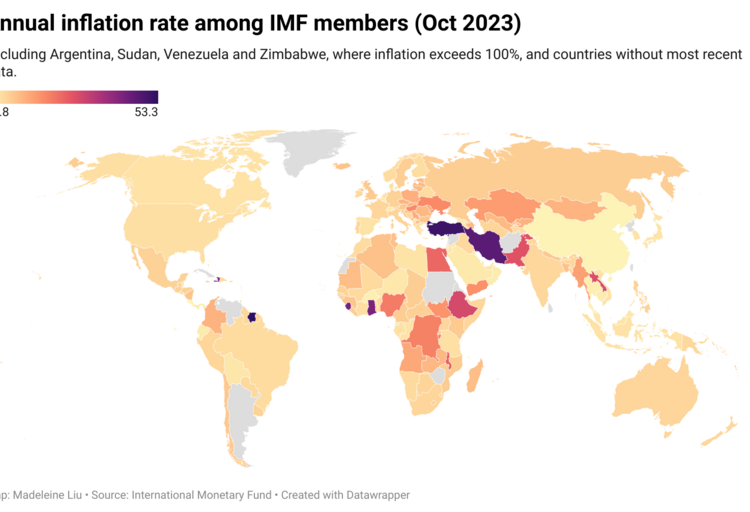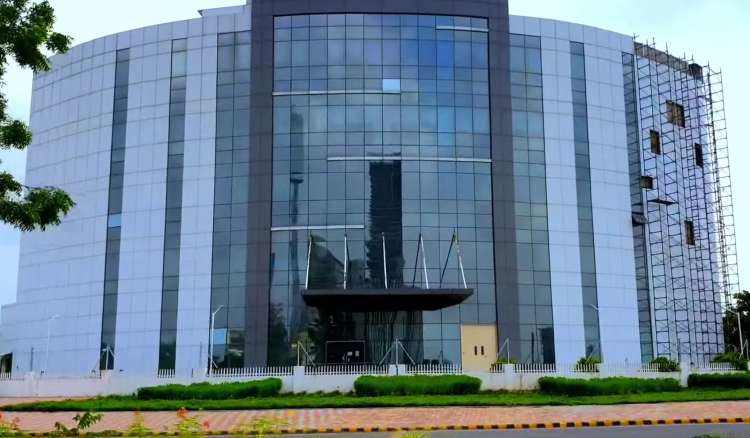Unprecedented impact of rate hikes on the economy
- Fed’s rate hikes have not generated a recession
- Previous rate-hiking cycles have always led to a recession
- New-home sales and manufacturing production have been impacted
- Tech companies have become more efficient due to higher interest rates
- Investors are focusing on cash flow over sales growth
- Spread between B and BB rated junk bonds is getting tighter
- S&P 500 ended February at a record high
One of the enduring puzzles of the current economic strength is how little impact the Fed’s rate hikes seemed to have caused — not generating the recession or crisis that every previous hiking cycle over the last 70 years has done. The hikes, from zero all the way up to the current range of 5.25% and 5.5% in just a year and a half, did impact parts of the economy: new-home sales, for instance, slumped from an annual rate of 830,000 just before the rate hikes to as low as 543,000, and are still only at 661,000. Manufacturing production has basically flat-lined, and only now are there signs of it improving. But the U.S. economy just isn’t that interest-rate sensitive anymore. Moses Sternstein of the Random Walk blog shared this chart, originally produced by Bank of America, showing the percentage of the S&P 500 SPX made up of what it calls asset-light sectors, which include technology as well as health-sector companies. And while that’s just the stock market, the broader economy is also less capital intensive. He said the real impact of higher interest rates on tech companies is that it made them more efficient. Sternstein noted that tech companies as rates started rising focused more on cash flow over sales growth. “Investors may not love it because while profit is fine, growth is the sexy part, but from the standpoint of ‘wheels staying on the economy,’ then profit works just fine,” he writes. As for the market, Sternstein shared a chart of the spread between B and BB rated junk bonds getting tighter. “Either a wicked-dead cat bounce with lots of egg on everyone’s faces, or doggone it, we’re off to the races again,” he said. The S&P 500 ended February at a record high after a 5.2% surge, and the index has climbed 21.5% over the last four months alone.
Factuality Level: 3
Factuality Justification: The article contains some relevant information about the impact of the Fed’s rate hikes on the economy, but it lacks depth and context. It includes some unnecessary details and tangential information that do not contribute significantly to the main topic. Additionally, the article presents some opinions as facts without providing sufficient evidence or analysis.
Noise Level: 3
Noise Justification: The article provides a detailed analysis of the impact of the Fed’s rate hikes on the economy, particularly focusing on the tech sector and the stock market. It offers insights into how higher interest rates affected different sectors and provides data to support its claims. However, the article could benefit from more depth in exploring the broader economic implications and potential risks associated with the current economic trends.
Financial Relevance: Yes
Financial Markets Impacted: The article discusses the impact of the Fed’s rate hikes on the economy and the stock market, specifically focusing on the technology and health sectors.
Presence Of Extreme Event: No
Nature Of Extreme Event: No
Impact Rating Of The Extreme Event: No
Rating Justification: The article primarily focuses on the impact of the Fed’s rate hikes on the economy and the stock market, without mentioning any extreme events or their impact.
Public Companies: Bank of America (N/A)
Key People: Moses Sternstein (Random Walk blog contributor)
 www.marketwatch.com
www.marketwatch.com 





